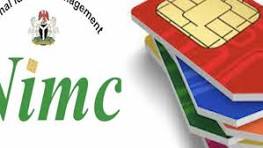Fresh facts have emerged that 60.5 million (60,492,104 BVN counts) bank accounts have been linked to the Bank Verification Number (BVN) as of January 26,2024, data from the Nigerian Interbank Settlement System (NIBSS) has shown.
According to the latest figure obtained from the NIBSS website, the banks witnessed 1.492 million (60,492,104-58,999,262) new BVN registrations in the past five months.
While data from the 2023 EFInA Access to Finance (A2F) survey showed that 52 percent (28 million) unbanked adults have National Identification Number (NIN) and five percent (3 million) of banked adults are without BVN or NIN, the NIBSS records showed that the banking industry recorded 59 million (58,999,262) BVN counts as of October 9, 2023.
The Central Bank of Nigeria (CBN) had on December 1, 2023, in a circular directed that a ‘Post no Debit’ restriction be placed on all bank accounts without the BVN and NIN from Friday, March 1, 2024.
Post No Debit’ is a term used to describe a restriction imposed by banks on specific accounts, preventing customers from making withdrawals, transfers, or any other debits from such accounts. This measure effectively freezes the funds in the account, rendering them inaccessible for the duration of the restriction.
The circular, jointly signed by the Director, Payments System Management Department, Chibuzo Efobi; and Director, Financial Policy and Regulation Department, Haruna Mustapha, read, “It is mandatory for all Tier-1 bank accounts and wallets for individuals to have BVN and/or NIN. It remains mandatory for Tiers 2 & 3 accounts and wallets for individual accounts to have BVN and NIN.
“For all existing Tier-1 accounts/wallets without BVN or NIN: Effective immediately, any unfunded account/wallet shall be placed on ‘Post No Debit or Credit’ until the new process is satisfied. Effective March 1, 2024, all funded accounts or wallets shall be placed on ‘Post No Debit or Credit’ and no further transactions permitted. The BVN or NIN attached to and/or associated with all accounts/wallets must be electronically revalidated by January 31, 2024.”
The circular went on to warn banks in the country that a “comprehensive BVN and NIN audit shall be conducted shortly and where breaches are identified, appropriate sanctions shall be applied.”
As the deadline elapsed, some banks have sent out messages to their customers to regularize their accounts in line with the new CBN directive.
While some asked customers to visit their physical branches, others made provisions for customers to update their accounts online.
FirstBank Nigeria in an email to customers said, “Please ensure that your Bank Verification Number and National Identification Number are linked to your account number on or before February 29, 2024.
“You can seamlessly update your account information with your BVN and NIN by visiting any FirstBank branch close to you. Please note that the Central Bank of Nigeria through its circular: PSM/DIR/PUB/CIR/001/053 dated December 1, 2023, has directed that effective March 1, 2024, all funded accounts without BVN shall be placed on ‘Post No Debit or Credit’ and no further transactions permitted.”
Ecobank Nigeria wrote, “Please be informed that the Central Bank of Nigeria through its circular dated December 1, 2023, has announced that all accounts without Bank Verification Number and/or the National Identity Number would not be able to carry out transactions from March 1, 2024.
“Consequently, you will be required to update your account information with your National Identification Number and Bank Verification Number if you have not done so already.” It, however, offered an online solution.
Fintech firm, OPay, also called on its customers to complete the regularization of their accounts by linking their BVN or their NIN as mandated by the apex bank, offering them both online and offline options.
A Tier-1 account refers to a bank account that can be opened with minimal or no form of documentation. Such an account can be opened with a passport photograph and has a limit of N50,000 deposit and an operating balance of N200,000 and is mostly not linked to the BVN and is targeted at the unbanked population.
This space is dominated by fintech firms and there are concerns that the lax Know Your Customer requirements are loopholes that are being used to perpetuate fraud.
According to data from Statista, as of 2021, the number of active bank accounts in the country was around 133.5 million, with savings accounts making up about 120 million.
Bank customers who have not linked their NIN with their bank accounts on Thursday and Friday thronged the banking halls to meet up with the deadline or have their accounts placed on Post No Debit.
Also, the National Identity Management Commission (NIMC) and telecommunications companies were flooded by Nigerians who have yet to link their NINs to their SIMs.
The customers also asked the CBN to extend the deadline for them to link their BVNs and NINs with their accounts.
